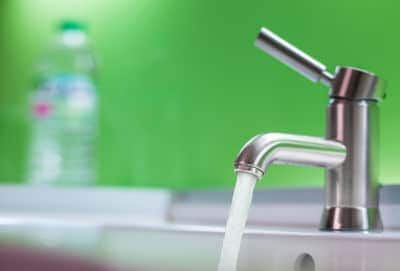
Celebrate World Water Day On March 22nd
You probably don’t spend much time thinking about water, despite it being a necessity in your daily life. Many of us don’t. The United States is one of the largest consumers of freshwater resources on Earth, with the average American using between 80 and 100 gallons per day. It’s easy for us to keep hydrated and sanitary, a fact that we usually take for granted. Meanwhile, 1 out of 9 people in the world go without access to safe drinking water.
This sip of knowledge is just one of the many reasons why March 22 is World Water Day, an international observance of the essentiality of water and related concerns. Originally designated as an annual celebration of the importance of freshwater by the UN in 1993, it now serves as a reminder of the lives that can be saved if we focus world-wide, coordinated effort towards sustainable water management. On World Water Day, people all around the world can demonstrate that they care about agriculture, health, trade, and the environment. Campaigns are held as a way to raise money for worldwide access to safe water, and nongovernmental organizations use the day to promote sustainability through suggestions to protect water resources. The UN-Water also coordinates international events and activities for each of its 193 member-states to educate, inspire, and insight change within their countries.
2016: Jobs And Water
The United Nation’s agency, UN-Water, chooses a new theme every year to draw attention to specific issues involving freshwater. The subject for 2016 is “Water and Jobs.” What does water have to do with employment? Water relates to jobs with issues connected to the economy, human rights, gender, and vulnerable populations. It is essential to the survival of the over 1 billion people working in agriculture, fishing, and forestry, so nearly all of our livelihoods depend on those whose job it is to make sure water is delivered safely.
Despite the essential roles they fulfill, millions of people who work in water-related services aren’t recognized or protected by basic labor rights. Every hour, 38 workers die from water-related diseases. These deaths can be prevented with better water and sanitation. This year, UN-Water’s goal is to make a major positive impact on societies and economies by convincing donors and governments to sign on to implement strategies to improve human rights and water in developing countries. UN-Water will also use Water Day to campaign for the international community’s involvement with the slogan, “Better water, better jobs.”
This is especially important because of impending environmental concerns. Climate Change means that water-wise farmers are more important than ever to feed 7 billion people. By developing a better global landscape for the present workers’ livelihoods and quality of life, we can pave the way for a safer, cleaner future. All across the world, even right here in the USA, water can create paid and decent jobs while contributing to a greener economy and a sustainable development.
The USA And Water Day
While Water Day is not considered a “public holiday” in the United States, you can observe the messages of international event and even help contribute to better water quality and management for the world by limiting your consumption. Now, don’t think that this means you shouldn’t DRINK plenty of it! Even mild dehydration can cause dizziness and concentration issues. But there are other ways that you can reduce your daily use!
- Eat Local: Food consumption is the largest part of your “water footprint” (the amount of water that one person consumes impacts the size of their water footprint). In fact, about 92% of your water footprint is made up of your consumption of agricultural and animal products. Want to make a huge positive and direct impact on your community and on the environment? Try only eating food that has been grown and processed in your local water catchment area. The higher the demand is for locally-sourced food, the less food processors will invest in outsourcing products from farther-away locations that will use more resources to transport.
- Eat Greens: Americans’ high consumption of meat is a huge factor in our already excessive water footprint. It takes much more water to produce any animal product than it does to produce a wisely chosen crop of equal nutritional value. (For example, it takes 3,962 gallons of water to produce two steaks!) While eating a strictly vegetarian diet is an incredible gift to the environment, you don’t have to give up meat completely to make a small difference. Just having a vegetarian meal from time to time would help. The ingredients to make a vegetarian meal take less water to produce than a burger, a pork taco, or a sandwich of poultry.
- House Plants Rain Chants: Do you like having indoor plants and flowers? Great! Instead of hydrating them with a freshly filled watering pot that you would not otherwise need to consume, try taking care of them the natural way! Bring your house plants outside when it’s about to rain so that they can get a drink from the sky without wasting any resources.
- Turn off the Tap: When brushing your teeth or shaving, turn off the tap until you need to rinse. You could save up to 200 gallons of water per month!
- Toilets and Waste: Checking your toilet for leaks could stop your toilet from running, which wastes up to 200 gallons of water per day. Investing in low-flow toilets (which use 1.28 gallons per flush) to replace your standard toilets (which can use anywhere between 1.6 to 7 gallons per flush) could reduce the amount of water you waste by 20 to 60 percent.
- Shower-Aide: Everyone appreciates good hygiene, which can still be achieved with shorter showers. If you have trouble timing yourself, play one of your favorite songs and see if you can get out before it ends.
- Stop Cleaning: Well, not completely. But wait to use the washing machine until you have a complete load of dirty clothes. Only run your dishwasher when it’s full. Your household could save up to 1,000 gallons of water per month.
- Buy Recycled Products: You can choose to buy stationary, paper towels, tissues, and toilet rolls made from recycled paper, and you can find out which manufacturers use recycled plastic in producing kitchenware, gardening tools, and cleaning equipment. Buying used clothes, books, furniture, and vehicles are also valuable water-saving options.
- Car Care: You don’t need to clean or wash the exterior of your car unless you can’t see out your windows.
Get Involved
There are many more ways that you can celebrate World Water Day! Go to water.org to learn how you can race, fundraise, donate, and show your support through social media to help hydrate an international cause. And speaking of car care and recycling, you can combine two great ways of saving water by donating your used vehicle to Wheels For Wishes to benefit local children. Check out which charity your donation will go towards with our Chapter Locator. And don’t worry about wasting resources by cleaning it: We’ll take your donation in any condition! When you donate a car, truck, boat, or motorcycle to Wheels For Wishes, we will even tow it for you. To make a car donation, simply call 1-855-278-9474 or make your donation online.







